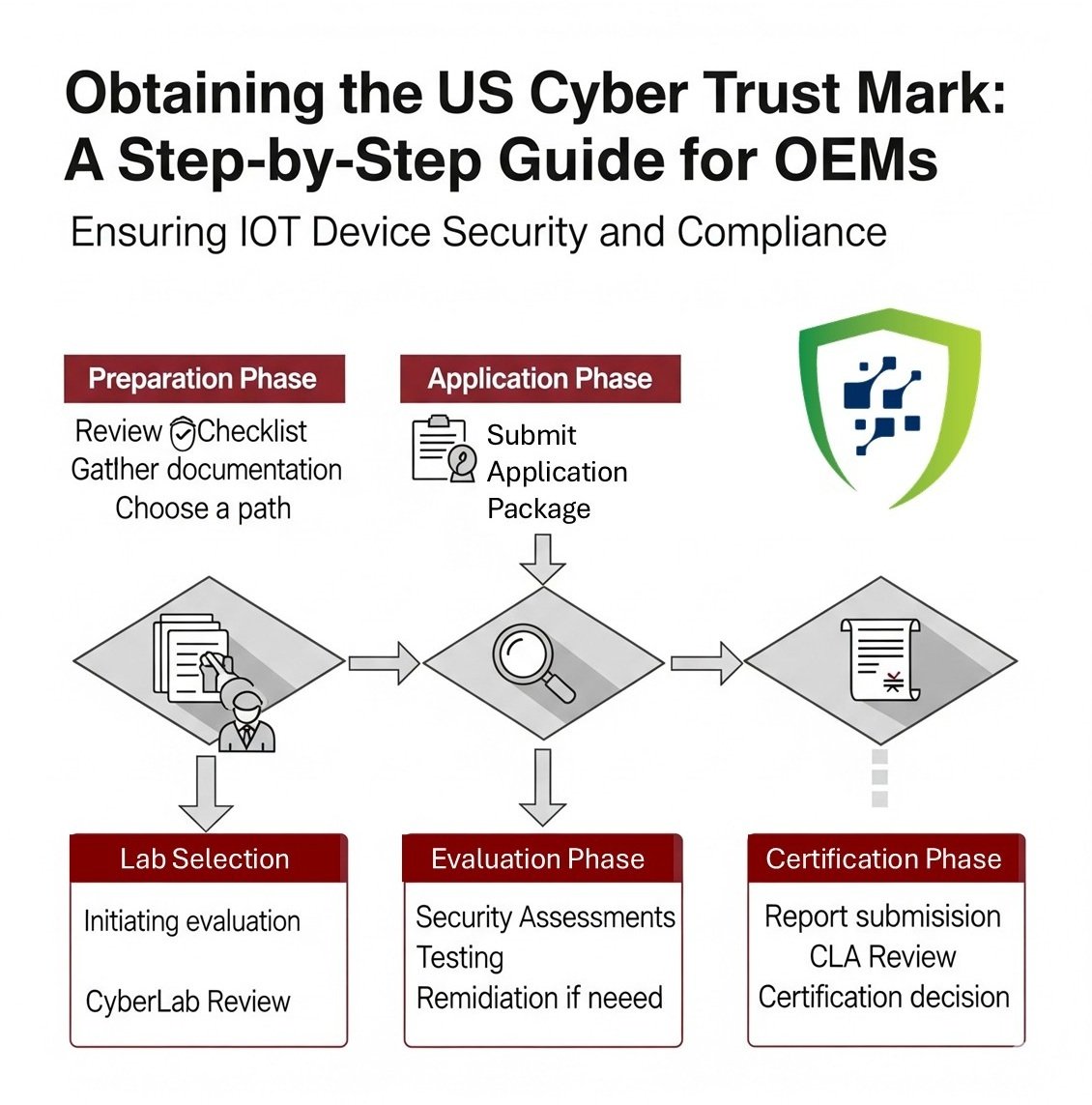Why EN 18031 Certification Matters for IoT Device Manufacturers in the EU
As the European Union strengthens its regulatory framework around digital products, cybersecurity certification is no longer a competitive...

In an increasingly connected world, where everything from smart appliances to fitness trackers relies on the Internet of Things (IoT), cybersecurity has become a paramount concern. To address the growing vulnerabilities and empower consumers to make informed decisions, the Federal Communications Commission (FCC) has launched the U.S. Cyber Trust Mark program. This voluntary cybersecurity labeling initiative aims to elevate security standards across the IoT landscape, offering significant benefits to both consumers and manufacturers, and bolstering the resilience of U.S. critical infrastructure. [World Economic Forum] [Federal Communications Commission]
The U.S. Cyber Trust Mark is a distinctive shield logo displayed on qualifying consumer wireless IoT products that meet robust cybersecurity standards. This program, overseen by the FCC in collaboration with approved third-party Cybersecurity Label Administrators (CLAs) and accredited testing labs, serves as a clear indicator of a product's security posture.
Similar to the ENERGY STAR program for energy efficiency, the Cyber Trust Mark is designed to simplify complex cybersecurity information for consumers. When consumers see the mark, they can be confident that the device has undergone rigorous testing and meets established cybersecurity criteria set by the U.S. National Institute of Standards and Technology (NIST).
A key feature of the Cyber Trust Mark is the accompanying QR code. Scanning this code links consumers to a national registry of certified products, providing easy-to-understand details about the device's security features. This information includes:
The Cyber Trust Mark offers several crucial advantages for consumers navigating the vast and often confusing IoT market:
While voluntary, participation in the Cyber Trust Mark program offers substantial benefits for manufacturers:

While the Cyber Trust Mark primarily targets consumer IoT devices, its broader impact on U.S. critical infrastructure is significant and includes:
The FCC Cyber Trust Mark is a vital step forward in securing our increasingly connected world. By empowering consumers with transparent security information and incentivizing manufacturers to prioritize cybersecurity, the program fosters a more trustworthy IoT ecosystem. This, in turn, contributes to a more resilient digital landscape, indirectly but effectively bolstering the security of U.S. critical infrastructure against evolving cyber threats. As stated by the White House, the program aims to "help Americans make more informed decisions about the cybersecurity of products, from baby monitors to security systems, they bring into their homes," and "incentivize companies to produce more cybersecure devices, much as EnergyStar labels did for energy efficiency."
The collaborative efforts between government and industry, exemplified by organizations such as Palindrome Technologies, are crucial in building a future where convenience and connectivity are matched by robust security.
Learn more about Cyber Trust Mark testing and certification process
As the European Union strengthens its regulatory framework around digital products, cybersecurity certification is no longer a competitive...
In today's interconnected world, where industrial automation and control systems (IACS) are the backbone of critical infrastructure and...
The increasing connectivity of medical devices has revolutionized healthcare, offering unprecedented benefits in patient monitoring, diagnosis, and...
Technical Analysis of the CISA Micro-segmentation Guidance